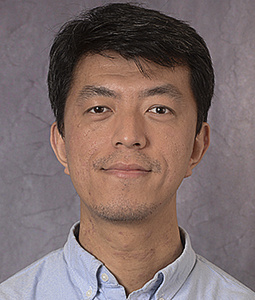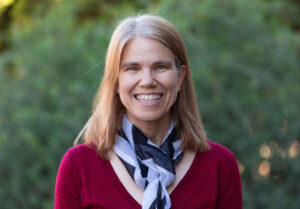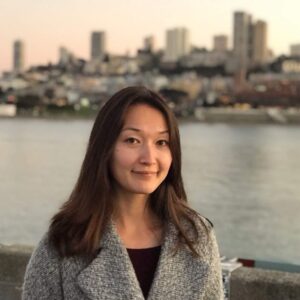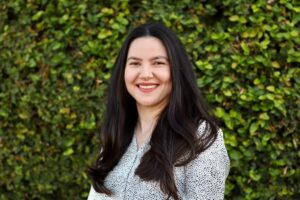
Wednesday, February 7, 2024, 4:00–5:30 p.m. (New York Time)
Decentering Grades – Centering Learning: Ungrading in Language Classes
Evgeny Dengub, University of Southern California
Slides: tinyurl.com/EvgenySlides
Register: https://psu.zoom.us/webinar/register/WN_hTRk8q87RbWWw_NbZzmzNw
Abstract:
In his talk, Professor Evgeny will introduce the ungrading philosophy, aimed at rehumanizing language education by shifting focus from traditional grading to student-centric learning. He’ll share ungraded practices from his language classes, exploring their wider implications in educational programs. Participants will engage in self-reflection on their grading methods, gain insights into the implementation of ungrading, and learn strategies to adapt their syllabi to this approach.
Bio:
Evgeny Dengub is a teaching professor at the University of Southern California, where he is also the director of the Russian Language Program and the director of the Center for Languages and Cultures. In addition, he holds the position of associate director at the Middlebury College Russian Language Summer School. Evgeny Dengub has received multiple awards and honors throughout his career. He is a two-time winner of the Best Contribution to Language Pedagogy Prize from the American Association of Teachers of Slavic and Eastern European Languages (AATSEEL) for his Russian language textbooks Etazhi and Panorama. He also earned the 2019-2020 Kenneth W. Mildenberger Prize Honorable Mention from the Modern Language Association (MLA) for his co-editorial contributions to The Art of Teaching Russian.
Evgeny is a co-organizer for the online conference “Grading Less – Learning More,” targeting educators in world languages and literatures, scheduled for January 2024.

Thursday, February 29, 2024, 4:00–5:30 p.m. (New York Time)
Maximizing the experience of heritage speakers in study abroad contexts
Antonio Jimenez, California State University Channel Islands
Slides: tinyurl.com/JimenezSlides
CALPER Study Abroad Materials: https://calper.la.psu.edu/materials/study-abroad/
Register: https://psu.zoom.us/webinar/register/WN_hTRk8q87RbWWw_NbZzmzNw
Abstract:
This webinar focuses on the experiences of heritage speakers who choose to study abroad (SA) in order to enhance their language abilities and connect with their heritage roots. In this presentation, we will begin by describing the key characteristics that distinguish heritage students from traditional second language learners. Subsequently, we will delve into the literature on heritage students participating in study abroad programs, exploring both linguistic perspectives and cultural and identity standpoints. Finally, we will propose best practices to help optimize the experience of these students during their time abroad. While the examples and information presented will primarily draw from the context of Spanish heritage learners, the insights offered will be equally applicable to heritage students across various languages
Bio:
Antonio F. Jiménez Jiménez holds a Ph.D. in Spanish Applied Linguistics from the Penn State and a B.A. in Translation and Interpretation from the University of Málaga (Spain). His initial research focused on the acquisition and attrition of second languages during and after study abroad programs. Over the last 20 years, he has been teaching Spanish, Translation, and Linguistics at California State University Channel Islands, a Hispanic Serving Institution where the majority of his students are Spanish heritage learners. His current research centers on the linguistic and cultural impact that studying abroad may have on Spanish heritage speakers, with the ultimate goal of maximizing their experience during their time overseas.

Tuesday, March 5, 2024, 4:00-5:30pm (New York Time)
Learning and memorizing vocabulary: mental lexicon development in L2 learners
Jiang Liu, University of South Carolina
Register: https://psu.zoom.us/webinar/register/WN_hTRk8q87RbWWw_NbZzmzNw
Abstract:
This webinar will provide an overview of research in lexeme learning that includes phonological, semantic, and orthographic forms of a word and its implications on L2 vocabulary learning. When learning L2 vocabulary, learners often come across words that share similar or same pronunciation with distinct orthography or same orthography with different pronunciation. By studying learners’ mental representation of newly learned words their connections to previously learned words, we show that learners are sensitive to phonological similarity among words, and it can facilitate their vocabulary learning. We targeted on L1 English-L2 Chinese learners’ acquisition of spoken and written forms of vocabulary. We will demonstrate concrete examples of activity types for teaching vocabulary such as making tweaks to direct students’ attention to orthography-pronunciation association or meaning-pronunciation association.
Bio:
Jiang Liu is an associate professor of Chinese and Linguistics at the University of South Carolina in Columbia, SC. He holds a Ph.D. in Linguistics from the University of Kansas. His research focuses on mental lexicon development with the goal of addressing the gap between psycholinguistic research findings in mental lexicon and teaching practice. Contact him at jiangliu@mailbox.sc.edu or visit https://sc.edu/study/colleges_schools/artsandsciences/dllc/our_people/liu_jiang.php to learn more about his research and teaching.



Wednesday, April 17, 2024, 4:00–5:30 p.m. (New York Time)
Modeling Learner Corpus-Based Instruction: Examples from Less Commonly Taught Languages
Shelley Staples, Valentina Vinokurova, Mariana Centanin-Bertho, The University of Arizona
This event is co-sponsored by CERCLL, more information about CERCLL can be found here: https://cercll.arizona.edu/mission/
Links:
Link to MACAWS corpus: https://macaws.corporaproject.org/
Link to MACAWS activities: https://sites.google.com/email.arizona.edu/macawswebinar/activities
Register: https://psu.zoom.us/webinar/register/WN_hTRk8q87RbWWw_NbZzmzNw
Abstract:
Language corpora can be successfully used for creating pedagogical materials in various contexts and languages. However, engaging with texts from native-speaker corpora can be daunting for language learners. Learner corpora, corpora built from learner texts, can help fill the gap by providing level-appropriate materials. In addition, using learner language helps validate learner language as a legitimate variety.
This workshop will introduce the Multilingual Academic Corpus of Assignments – Writing and Speech, an open source learner corpus of Russian and Portuguese. Participants will be introduced to the benefits of using corpora in the language classroom, learn to navigate the MACAWS interface, gain access to existing corpus materials, and brainstorm how they can use our materials or create their own corpus-based activities. While the workshop focuses on teaching Russian and Portuguese, participants will gain insight for the teaching of other languages using a learner corpus approach.
Bio:
Shelley Staples is associate professor of English and Second Language Acquisition and Teaching at the University of Arizona. Her research focuses on the use of corpus-based discourse analysis to investigate language use across spoken and written contexts. Her research aims to inform language teaching and assessment, particularly in the areas of English for Academic and Specific Purposes (EAP/ESP. Her current projects focus on academic writing and health care communication.
Valentina Vinokurova is a Ph.D. candidate in Second Language Acquisition and Teaching at the University of Arizona. She specializes in Russian language teaching. Her research focuses on technology-enhanced language learning, multiliteracies and content-based instruction, and learner identity.
Mariana Centanin-Bertho is a Ph.D. candidate in Second Language Acquisition and Teaching at the University of Arizona. Her research focuses on the acquisition of L2/L3 Portuguese and phonological acquisition with usage-based data. She is also an instructor of Portuguese and researches the creation and implementation of corpus-based materials in language classrooms.